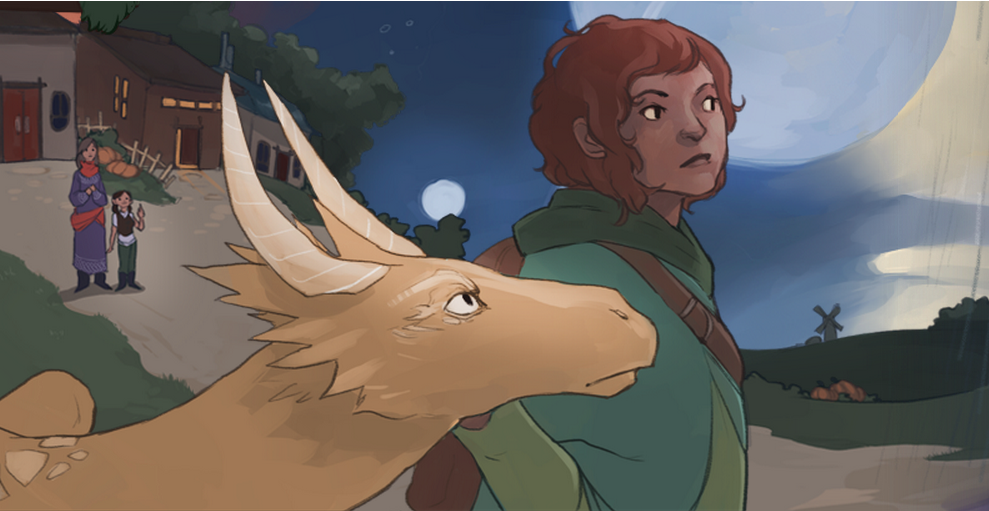How well do students learn genetics concepts using Geniverse in their high school biology class?
 Scarlett, the Geniverse female avatar, and Arrow the dragon journey to the remote Drake Breeder’s Guild.
Scarlett, the Geniverse female avatar, and Arrow the dragon journey to the remote Drake Breeder’s Guild.
With funding from the National Science Foundation, we sought to understand the contributions and challenges of teacher implementation of digital games by studying Geniverse, an immersive, game-like learning environment that infuses virtual experimentation in genetics with narrative elements. Our research, published in the Journal of Science Education and Technology, used a quasi-experimental design to study the replacement of existing high school biology genetics lessons with Geniverse over a three- to six-week period.
 Students determine patterns of inheritance by breeding drakes, the model organism for dragons.
Students determine patterns of inheritance by breeding drakes, the model organism for dragons.
Results indicate that overall, students’ genetics learning increased significantly and was commensurate with genetics learning in comparison classrooms. In addition, when Geniverse was implemented as intended, student learning of genetics content was significantly greater than in the comparison, “business-as-usual” group. However, only 25% of students in the study progressed through the game to the minimum required level. Further, a wide range of levels of Geniverse implementation resulted in no significant difference between the groups as a whole.
We discovered multiple reasons for low levels of student progression, including teacher difficulties managing students moving through the game at different speeds, challenges with teaching science via student-led inquiry and exploration rather than through teacher-led, whole-class instruction, as well as multiple issues around teaching with technology. To address these issues, two new NSF-funded projects, GeniGUIDE and GeniConnect, are investigating the use of real-time student tracking, data analytics, and scaffolding with an intelligent tutoring system to assist teachers with implementation.